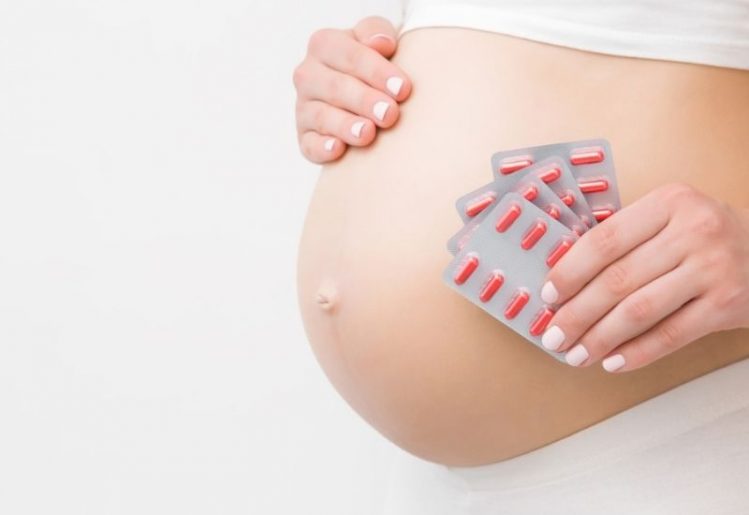The relationship between pregnancy and skin changes is something that many women notice right away when they are expecting. During pregnancy, the influx of new hormones can do a number on your skin’s health and appearance. Complicating the issue is the fact that you may need to adjust your usual skincare routine in an effort to protect the growing baby.
Here is what you need to know about skin care during this special season of life, including what ingredients you need to avoid and how you can support your skin’s health while pregnant.
Pregnancy and Skin Changes
 There is no doubt that pregnancy can wreak havoc on nearly every aspect of your appearance and health. The health of your skin is no exception. Not every mother-to-be experiences the glowing complexion often associated with pregnancy. In fact, some women notice a change for the worse in the health of their skin. Some of the most common changes to the skin that pregnant women notice include hyperpigmentation, an increase in acne breakouts and a proliferation of spider or varicose veins.
There is no doubt that pregnancy can wreak havoc on nearly every aspect of your appearance and health. The health of your skin is no exception. Not every mother-to-be experiences the glowing complexion often associated with pregnancy. In fact, some women notice a change for the worse in the health of their skin. Some of the most common changes to the skin that pregnant women notice include hyperpigmentation, an increase in acne breakouts and a proliferation of spider or varicose veins.
In addition, some women develop what is known as the “linea nigra,” a dark line that runs between the belly button and the pubic area. And there are always the dreaded stretch marks that may begin to appear in the latter stages of the pregnancy.
Ingredients to Avoid During Pregnancy
Before you use any type of skincare product when pregnant, regardless of whether it is prescription or over-the-counter, you need to read the label to make sure that it is safe for the baby. The most important ingredient to avoid during pregnancy is retinol. Products containing retinoids can lead to congenital disabilities. You will find retinoids in a variety of topical creams and ointments.
Health care professionals also recommend that you avoid using products with hydroquinone, an ingredient most commonly used to lighten the skin. Phthalates are also potentially harmful to growing babies, and are linked to a variety of serious complications, including a higher chance of pre-term birth, maternal glucose disorder, preeclampsia and more.
While it will not cause serious health complications, healthcare professionals recommend that you stop using products that contain doxycycline, minocycline or tetracycline once you hit the 15-week mark of pregnancy. These chemicals have been shown to potentially stain the teeth of the fetus.
Lastly, although formaldehyde is no longer used in skincare products and cosmetics because of its many health risks, there are still products that contain formaldehyde releasers that turn into the chemical over time. It is important to avoid these types of products as well.
If you are ever in doubt, it is always a good idea to check with your OB/GYN before trying a new product. You can never be too careful when it comes to the health of your unborn baby.
Safe Skin Care Ingredients
Now that you know what you should avoid putting on your skin during pregnancy, you may be wondering what exactly is safe to use during this time. The American College of Obstetricians and Gynecologists (ACOG) recommends the use of glycolic acid as a safe alternative during pregnancy. This product is safe, as it works to brighten the complexion and reduce the risk of skin pigmentation. This includes the use of azelaic acid.
Other ingredients that have been deemed safe to use during pregnancy include topical benzoyl peroxide and topical salicylic acid.
While you do not have to forego your normal skincare routine when you become pregnant, you should take some time to scrutinize the ingredients list of your products to make sure that everything has been marked as safe for a developing fetus.
Promoting Optimal Skin Health During Pregnancy
 One of the easiest ways that you can help to guard against free radical damage while supporting skin health during pregnancy is to take a targeted prenatal supplement that contains a range of essential vitamins and nutrients that are important for both mother and baby.
One of the easiest ways that you can help to guard against free radical damage while supporting skin health during pregnancy is to take a targeted prenatal supplement that contains a range of essential vitamins and nutrients that are important for both mother and baby.
For example, vitamin D is instrumental in treating a variety of skin conditions such as psoriasis and hyperpigmentation. Omega-3 fatty acids are helpful in boosting hydration, regulating the oil production on the surface of the skin, minimizing the visible signs of aging and keeping acne breakouts at bay. These omega-3s have also been shown to soften dry skin and soothe patches of irritation that can be common during pregnancy.
You do not have to resign yourself to skin issues just because you are pregnant. Knowing what ingredients are safe and which should be avoided can help you to make good decisions for both you and your baby.


